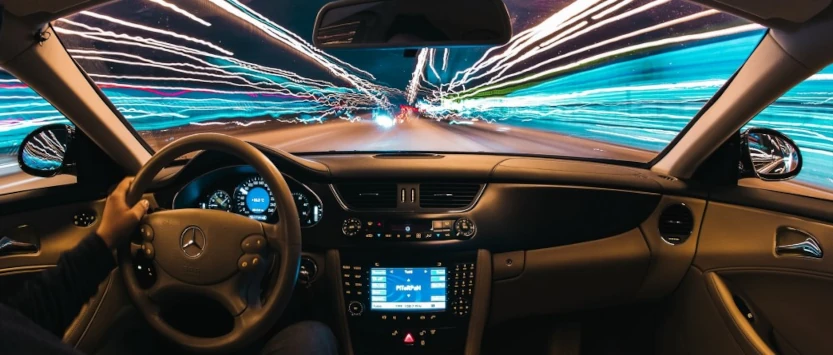“Do I Need to Tell My Insurance I Drive for Lyft or Uber?”
2020 took a toll on all of us. A lot of people lost jobs and as a result had to find work elsewhere. Uber and Lyft became more necessary options for those folks looking to earn an income.
If you are thinking about driving for Uber and Lyft, you should think about your personal automobile insurance coverage.
As a new driver, it’s quite common to wonder, Do I need to tell my insurance I drive for Lyft or Uber?
In a word, the answer is Yes. Most auto policies now disclaim coverage if someone is engaged in “driving for hire” — in other words, driving for a rideshare company such as Uber or Lyft. Your insurance company could cancel your policy altogether, or refuse to renew it, if it were to learn that you’re using your personal vehicle for hire without disclosing this to them.
Explore Supplemental Insurance
Fortunately, most insurance companies now offer supplemental insurance to cover you when you are driving for Uber and Lyft.
Our recommendation is that you call your insurance company and ask about adding supplemental insurance onto your policy. It’s not very expensive — approximately $15 per month.
Supplemental rideshare insurance can take the place of your personal auto policy while you’re driving for hire — whether the app is on or off. This is a hybrid form of insurance policy designed to supplement your personal auto insurance policy for instances when you’re not covered by Lyft or Uber’s insurance. This insurance may also be responsible to pay out before Lyft or Uber’s policies are activated.
Whatever you do, don’t think you can avoid supplemental coverage and then make a claim for a crash that occurs while you are driving for Uber and Lyft. Your insurance company will probably find out and deny coverage in that situation.
Consider Insurance Offered by Uber and Lyft
The thought process shouldn’t end with supplemental insurance. Remember that Uber and Lyft provide insurance coverage to drivers and their passengers while rides are active.
The rideshare insurance coverage offered by Uber and Lyft depends on the driver’s status. The following questions determine what kind of coverage is available from Uber and Lyft:
- Is the app on and you are looking to pick up a ride?
- Have you accepted a ride and are you currently on the way to pick up passengers?
- Do you have passengers in your car and are your transporting them to their destination?
In terms of coverage amounts offered and ride status, these rideshare companies’ insurance plans are, on the surface, equivalent, as of March 2021:
- App is off: Your personal auto policy covers you and your passengers.
- App is on: A low level of liability coverage is provided by Uber or Lyft. This is $50,000 in bodily injury per person, $100,000 in bodily injury per accident, and $25,000 in property damage per accident. Learn more about the differences between bodily injury and property damage coverage in auto insurance policies.
- You’ve accepted a trip: A higher level of coverage is provided, including $1,000,000 in third-party in uninsured motorist (UM) and underinsured motorist (UIM) coverage.
- Passengers in your car: Same as above. Uber used to treat driving with passengers separately from driving without passengers separately. Now, Uber’s insurance policy to covers drivers and passengers once a ride is accepted.
You can compare each company’s policies here:
You May Need a Commercial Driver’s License
You might not have thought about the possibility of needing a commercial driver’s license (CDL) if you decide for Uber and Lyft. Yet, some states are now requiring that you have a commercial driver’s license if you drive for Uber or Lyft as your full-time occupation.
A commercial driver’s license is a separate test that you have to take with your department of motor vehicles. It typically requires getting a medical evaluation as well. Check with your DMV for its requirements so that you don’t put yourself into jeopardy.
Further Reading: Rideshare Accident Claims
You now know the answer when a friend or colleague asks you, Do I need to tell my insurance I drive for Lyft or Uber? But do you know what to do when you’re involved in an accident as a Lyft or Uber driver?
The process of filing an insurance claim involving a rideshare accident is no different from filing a claim with an insurance company for a personal accident. At Negretti & Associates, we have prepared a series of articles that highlight potential issues that may arise when filing rideshare insurance claims.
When making a rideshare accident claim, whatever you do, mind what you say, so that your answers are not used against you later. The same thing goes when reporting the accident claim through a rideshare company’s app. Be careful about what you write. A personal injury attorney can provide you with valuable advice before reporting your accident.
If you have been involved in a rideshare accident as a driver in Arizona, California, or California, reach out to Negretti & Associates. Call us at (602) 531-3911 in Arizona, (619) 777-3370 in California, or (720) 636-3444 in Colorado. You can also contact us online or send us a text.



